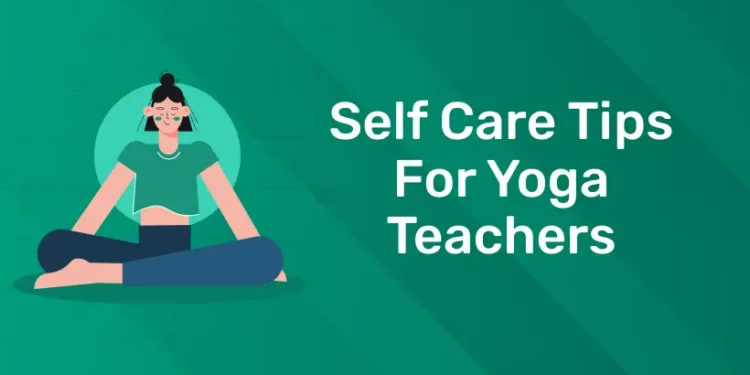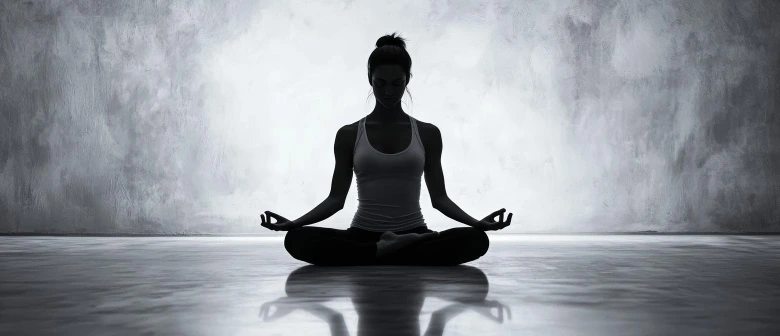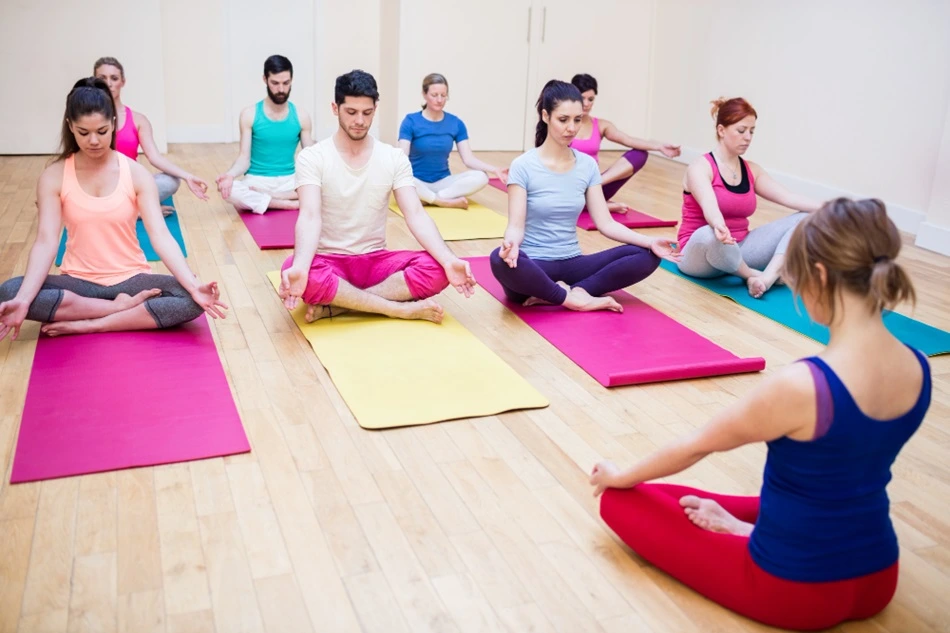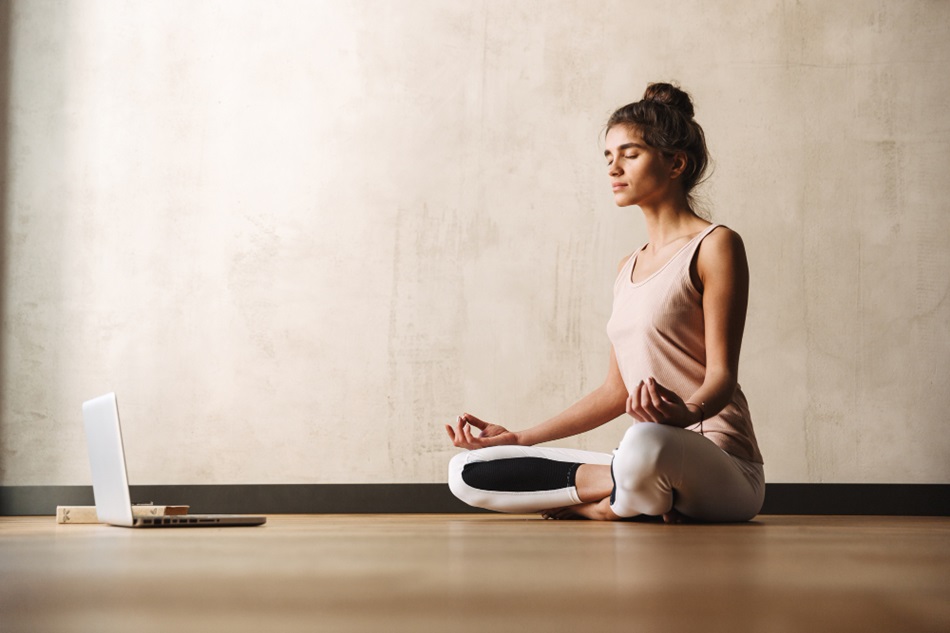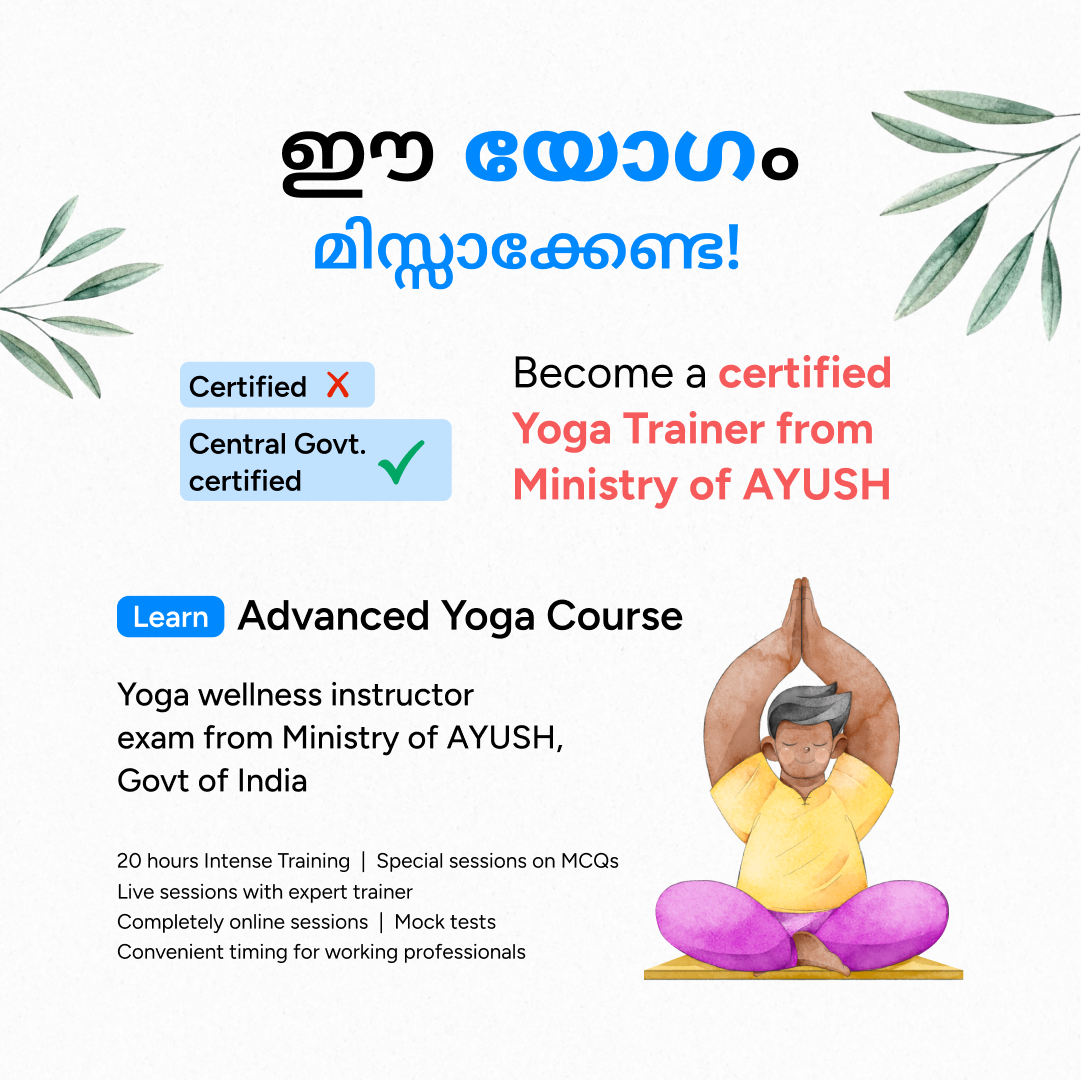Table of Contents
As a yoga teacher, you spend your days helping others find balance and peace, but how often do you take the time to nurture your own well-being?
Between teaching multiple classes, adjusting postures, and providing emotional support to your students, it’s easy to forget about your own self-care.
Self-care is essential for yoga teachers, not just for personal well-being, but to ensure that you can continue being a passionate and effective teacher. It helps to maintain a healthy body and mind, prevents burnout, and ultimately allows you to be the best version of yourself on and off the mat.
This blog will explore practical and effective self-care tips that yoga teachers can incorporate into their routines, so they can keep giving their best to their students while taking care of themselves.
Key Takeaways:
-
The importance of self-care to avoid burnout and enhance teaching effectiveness.
-
Tips for physical, mental, emotional, social, and spiritual well-being.
-
Practical ways to balance personal life and teaching energy.
Master the art of Yoga from Entri, Enroll now!
What is Yoga
Yoga is an ancient practice, that aims to unite body , mind and spirit. It originated in India as a spiritual practice but in the present world it has become popular as a way of promoting physical and mental well-being.
Although classical yoga also includes other elements, yogas practiced in Western countries typically emphasizes physical postures (asanas), breathing techniques (pranayama), and meditation (dyana).
There are many different yoga styles, ranging from gentle practices to physically demanding ones. This makes it challenging to evaluate research on the health effects of yoga.
Yoga is based on the Sanskrit word Yuj which means union and the ultimate goal of yoga is to achieve union.
Who is a Yoga Teacher
1: Which of these is the primary goal of yoga practice?
A yoga teacher, who is also referred to as a Yogi Guru in India, is a professional fitness instructor who exhibits in-depth knowledge in the science of yoga and meditation. A candidate looking to pursue yoga as a profession requires adequate qualification, certificate, and appropriate eligibility criteria to teach at fitness centers and studios.
Become a Certified Yoga Instructor
Yoga Teacher Training Course by Entri App: Master authentic yoga techniques, earn certification, and build a successful career as a professional yoga instructor.
Join Now!Yoga Teacher Eligibility
The eligibility criteria for a yoga teacher are as below:
- Good personal fitness and flexibility
- Good self-motivational skills and ability to empathize with fellow people
- Excellent communication and inspirational skills
- Ed/ M.Ed/ Diploma/ M.A/ B.A in Yoga training and teaching
- Good collaboration and instructional skills
- Excellent knowledge in the field of Yoga and meditation science
Master the art of Yoga from Entri, Enroll now!
Yoga Teacher Qualification
Currently, the need for yoga teachers in educational as well as corporate organizations is on the higher end. Yoga is unlike other physical exercises, where flex-and-stretch of muscles is very little and harmless. Yoga involves precise postures and controlled exercises which when performed incorrectly tend to cause serious pain to the muscle and possibility to harm the body. Thus, acquiring professional training and certificate in the profession is very crucial and essential to avoid misguided and wrong blunders to teach yoga.
To become a yoga teacher, a candidate must possess a fitness and health degree in Bachelors in Education with a specialization in Yoga courses or attain a Diploma in yoga training. Generally, the training course lasts from a few weeks to few years depending upon the style of Yoga.
Additionally, a Master in Education (M.Ed) in Yoga helps in gaining significant knowledge in different yoga techniques and philosophies boosting the opportunities for the candidates in the field of fitness professionals.
The necessary educational qualification for a Yoga teacher is as below:
- 10+2 Highschool degree
- B.A in Yoga
- M.A in Yoga
- Bachelors in Education (B.Ed -Yoga )
- Master’s in Education (M.Ed -Yoga )
- Diploma in Yoga Training
Master the art of Yoga from Entri, Enroll now!
Why self-care is essential for yoga teachers
Teaching yoga is physically, emotionally demanding. As a yoga teacher, you’re not simply guiding students through postures; you’re frequently offering emotional support, motivation, and a feeling of togetherness. It’s exhausting work physically, showing poses, adjusting students, and keeping the energy levels high. Spiritually, you could be bearing witness to magic and needing to navigate your own sense of privilege, or lack thereof, in the process.
And when self-care is ignored, it’s too easy to slide into burnout. Burnout, stress, and no personal time can decrease your vigour for instructing. Over time, this can leave you feeling alienated from your craft and pupils, impacting your effectiveness as an instructor. Burnout doesn’t just impact you – it can seep into your students’ as well.
As a yoga instructor, you’re a role model. Your students turn to you for advice on how to live a balanced life. By prioritizing self-care, you are leading by example, showing them the value of taking care of themselves. This prompts your students to develop their own care rituals.
Become a Certified Yoga Instructor
Yoga Teacher Training Course by Entri App: Master authentic yoga techniques, earn certification, and build a successful career as a professional yoga instructor.
Join Now!Self-care tips for yoga teachers
1. Make time for your own practice
Even if it is a couple of minutes of slow breathing, or one round of chanting, make sure you do something each day for yourself. One of the biggest issues trainers have is that they often don’t have as much time for their own practice as they used to. It doesn’t however have to mean spending an hour sweating it out on the yoga mat. Anything that helps keep you focused and present is worth doing each day.
2. Know when to say no
There are many people who would tell you to take all the opportunities you get, cover everyone’s classes and do it all for free. The thing is, yoga teachers can’t live for free. We need to pay for food and shelter too! If you find your schedule is getting a little too hectic and the quality of your classes is suffering because of the quantity, consider reducing some of the things that seem to be taking up more energy than they are worth.
3. Eat well
While many people come to yoga to find peace from the pressures of living up to looking ‘good enough’, body image issues are still common and the ‘Insta-yogi’ type of image that we are all familiar with on social media can make things worse. The fact is, though, if you’re using your body, you need to fuel up. Choose fresh, vibrant foods that you love. What you put in, you get out, so eat well to live well.
4. Sleep well
It goes without saying that we all notice the difference when we haven’t slept well. A busy schedule of evening classes and an early morning practice can affect your body and mind, so develop a routine that gets you into bed early in the evenings. Give yourself permission to sleep a little longer in the mornings if you have had a late night, and your body will thank you in the long run. Foods like kiwis, cherries, bananas, walnuts, almonds, organic dairy products can all contribute towards sleeping well.
5. Rest enough
When we are sleeping, we’re not necessarily resting – we are dreaming, processing, tossing and turning – so spending purposeful time getting some good quality rest is important. Yoga Nidra can be a wonderful way to reset the brain and body. Many yoga teachers note that after teaching for a while, their practice dramatically changes; they often crave a more gentle and still approach and appreciate Savasana a whole lot more!
6. Find a good bodyworker
Aches and pains are almost guaranteed if you use your body every day in your job. Many injuries yoga teachers experience are the result of demonstrating something without fully paying attention to their body in that moment. Find a massage therapist or ayurvedic practitioner who you can trust to help you when you need it most. You can also try some self-massage techniques.
Master the art of Yoga from Entri, Enroll now!
7. Open your mind to other movement practices
Flexibility is great, but not when it’s the only thing you are practicing. Years of stretching without any strengthening can lead to a worn out body and sometimes serious injury. It’s important to balance a yoga practice with other forms of movement, such as swimming, cycling, weight lifting, hiking, etc.
8. Do something that isn’t yoga
Much like the body needs different forms of movement, the mind needs different sorts of stimulation. Reading, watching a film, taking a walk somewhere different, travelling, having a long conversation with friends over dinner, can create new neural connections and breathe a breath of fresh air into the soul.
9. Seek support
Seek support from a mentor, friend or fellow teacher – find someone who knows a little about what it’s like to be in your position so you can talk openly with them about how you are doing.
10. Be true to you
There’s a fine balance between adhering to what a studio asks you to do and selling your soul. Are you teaching fast, strong classes because you are worried your students will be ‘bored’, when you would rather be teaching slow, alignment-based sessions? Your teaching career will be so much more sustainable and enjoyable if it comes from your heart rather than your head.
11. Do your best & let go of the rest
Worrying about whether your students are enjoying the class, thinking over why that woman in the front row looks like she’s having a completely terrible time, are all things that happen. Teachers often finish a class and wish they had said or done something differently. However, dwelling on the past is wasted energy. Instead of focusing on mistakes, grow from everything you learn.
12. Remember why you practise
Before you stand in front of a class to share a practice, take a deep breath, check in with yourself, arrive, be present, and remember why you are here.
Entri Yoga Teacher Training Course Online-Transform your life
Yoga is a great option if you want to live a better life and improve your health while having an exciting profession! Both the public and private sectors have a huge need for yoga instructors. Entri App has a course to help you prepare for the YOGA WELLNESS INSTRUCTOR exam. This exam is provided by the Central Government AYUSH Ministry. The course is 200 hours and lasts three months. It includes online classes, in-person instruction, and practical practice. Below are the benefits :
1) Online study materials
2) Malayalam/English languages
3) Online Evaluation
4) Zoom Live Classes
5) Teaching practice and practicals
6) 200 Hours Class
Conclusion
Research and studies suggest that there are several benefits of yoga which includes several aspects of wellness, including general wellness by relieving stress, mental/emotional health, promoting healthy eating/activity habits, sleep, and balance.
It also helps in relieving neck pain, migraine or tension-type headaches, and pain associated with knee osteoarthritis. It may also have a small benefit for low-back pain
It helps people with overweight or obese, and it also helps people quit smoking. It even helps people with chronic diseases manage their symptoms and improve their quality of life.
Become a Certified Yoga Instructor
Yoga Teacher Training Course by Entri App: Master authentic yoga techniques, earn certification, and build a successful career as a professional yoga instructor.
Join Now!Frequently Asked Questions
Why is self-care important for yoga teachers?
Self-care helps yoga teachers avoid burnout, maintain energy, and continue teaching with authenticity and passion while setting a positive example for students.
What are the physical self-care tips for yoga teachers?
Regular personal practice, proper alignment, balanced nutrition, hydration, and therapeutic treatments like massage are essential physical self-care practices.
How can yoga teachers prevent burnout?
By setting boundaries, scheduling rest days, practising mindfulness, and balancing personal life with teaching commitments, yoga teachers can reduce burnout risk.
Do yoga teachers need their own personal practice?
Yes. A personal yoga practice keeps teachers connected to their discipline, improves teaching authenticity, and prevents physical strain.
How can yoga teachers protect their mental health?
They can practice mindfulness, journal regularly, seek therapy when needed, and set emotional boundaries with students.
How do yoga teachers manage emotional energy from students?
By practising emotional detox (therapy, talking, or journaling) and setting professional boundaries to avoid absorbing too much emotional load.


